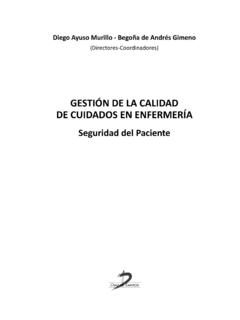Transcription of AVIATION TERMINOLOGY TERMINOLOGÍA AERONÁUTICA
1 :dicc 10/5/11 07:27 P gina V. JORGE GARC A DE LA CUESTA. AVIATION . TERMINOLOGY . terminolog A. aeron UTICA. ENGLISH-SPANISH. AERONAUTICAL DICTIONARY. DICCIONARIO aeron UTICO. ESPA OL-INGL S. EDITION II EDICI N. revised, updated revisada, actualizada 2011. :dicc 10/5/11 07:27 P gina VII. EXPLANATORY NOTES / OBSERVACIONES. Structure / Estructura 1. Headword / Lema. 2. Phrases. Derivatives. Compounds / Frases. Derivados. Formas compuestas. 3. Examples / Ejemplos. balloon. Globo aerost tico, globo. ~ basket. Barquilla de globo.. ~ist. Aeronauta, piloto de globo.. ~-parachute. Globo-paraca das.
2 Hot-air ~. Globo de aire caliente. Symbols: (~) stands for the headword which in bold begins every entry; (*) denotes pilot transmission. Signos: (~) representa el lema que en negrita encabeza cada art culo; (*) indica transmisi n de piloto. I am declaring emergency. Declaro emergencia.*. Solicito m dico y ambulancia. Request doctor and ambulance.*. In italics are included not only aeronautical phraseologies, but colloquial, dated, informal or rare terms, as well as foreign expressions and incorrect although usual vocables. En cursiva se incluyen no s lo fraseolog a aeron utica, sino t rminos coloquiales, anticuados, no oficiales o poco frecuentes, as como extranjerismos y vocablos incorrectos pero de uso generalizado.
3 Expedite descent. Acelere descenso. flash ident. Responda identificaci n. jaloppy. Cacharro, avi n destartalado. ship. Aeroplano. Abbreviations, acronyms and initials appear in their appropriate place, according to alphabetical sequence. Abreviaturas, acr nimos y siglas figuran en el lugar que alfab ticamente les corresponde. Headwords are normally made up of single terms, although sometimes they are sentences, acronyms or initials, which can be looked up directly or at the entry corresponding to some of their component words. Los lemas est n normalmente formados por vocablos simples, aunque en ocasiones son frases, acr nimos o siglas, que pueden consultarse directamente o en la entrada correspondiente a alguna de sus palabras componentes.
4 Normal arrangement in Spanish of different parts of speech: noun; adjective; verb. Orden normal de las diversas partes de la oraci n, en espa ol: sustantivo; adjetivo; verbo. damp. Humedad; h medo; humedecer(se). The verb category (-vb) is showed only in the second part, Espa ol-Ingl s. La categor a de verbo (-vb) se indica solamente en la segunda parte, Espa ol-Ingl s. volar -vb. Fly; aviate. :dicc 10/5/11 07:27 P gina XIII. SOMETHING LIKE A PREFACE. There was a faraway planet, Tero, with many countries and nations, cultures, traditions languages and dialects. Such linguistic diversity was really positive, but most Terans only spoke their mother tongue and countries did not understand each other.
5 Leaders and dealers from all over the planet communicated in the language of the most powerful State, but even the privileged who spoke it fluently were always at a disadvantage in relation to the natives. Every few centuries, with the fall of an empire, another great power arose with a new hegemonic language, as transient and inadequate as the previous ones. History repeated itself over and over, no national language was able to become a real and definitive universal language. Some linguists and philosophers maintained that, besides numbers, time, currency and music, the planet needed a common and neutral language which would end that unfair dominant-weak relationship, reinforcing the identity of all national, ethnic, regional and minority languages those idealists thought, while they always encountered the majority's indifference, the opposition of the privileged ones and the refusal of the political-economic empire.
6 After years of investigation, one of those wise men designed an international auxiliary language, named Ilo, based on the natural ones, with a simple grammar, free of irregularities and very easy to learn; a neutral functional language belonging to all the Tero inhabitants. And some centuries later, one fine day, common sense, democracy and solidarity prevailed; the Community of Nations adopted Ilo as universal language, suggesting all member States a trilingual teaching system: mother tongue, Ilo and a foreign language. After only three generations, bilingualism spread over the whole Tero, all its inhabitants perfectly understood one another in Ilo and each of them individual, country, nation used daily their own native tongue, so reinforcing their own cultural identity.
7 Certainly the conflicts did not disappear and still there were wars, hunger, unemployment and another injustices , but international relations multiplied without limit, the children of the most modest workers were bilingual by birth, the average intellectual capacity increased notably and illiteracy and linguistic colonialism disappeared. :dicc 10/5/11 07:27 P gina XIV. XIV Something like a preface abandon Eight thousand millions of people, with thousands of languages, understood one another in Ilo, a native-universal language perfectly compatible with the simplest of all dialects, with the very respectable dialect spoken by the residents of the most remote hamlet, who incredibly, years ago.
8 Could talk with any outsider from any nationality, for all of them were Ilo speakers. Privileges were over at least regarding to language , all Terans were privileged. Thanks to many linguists, thinkers, politicians and, above all, thanks to millions of anonymous idealists from all nations, it was finally proved that friendship among all countries greatly depended on dreams, ideals, utopias and on a common language. GCSB, FEB 2011. :dicc 10/5/11 07:27 P gina XV. A MANERA DE PR LOGO. rase un lejano planeta, Tero, con muchos pueblos y naciones, culturas, tradiciones idiomas, lenguas y dialectos.
9 Tal diversidad ling stica era realmente positiva, pero la mayor a de los teranos s lo hablaba su lengua materna y los pueblos no se entend an. Dirigentes y comerciantes de todo el planeta se comunicaban en el idioma del Estado m s poderoso, pero incluso los privilegiados que lo hablaban correctamente estaban siempre en inferioridad de condiciones con respecto a los nativos. Cada cierto tiempo, al ocaso de cada imperio, surg a otra gran potencia con un nuevo idioma hegem nico, tan transitorio e insuficiente como los anteriores. Repet ase una y otra vez la historia, ninguna lengua nacional pod a convertirse en aut ntico y definitivo idioma universal.
10 Algunos ling istas y fil sofos sosten an que, adem s de n meros, hora, moneda y m sica, el pla- neta necesitaba un idioma com n y neutral que acabara con aquella injusta relaci n de poderoso a d bil y reforzara la identidad de todas las lenguas nacionales, tnicas, regionales y minoritarias . pensaban aquellos idealistas, que siempre se encontraban con la indiferencia de la mayor a, la oposici n de los privilegiados y la negativa del imperio pol tico-econ mico. Tras a os de investigaci n, uno de aquellos sabios cre una lengua internacional auxiliar, llamada ilo, basada en las naturales, de sencilla gram tica, sin irregularidades y muy f cil de aprender; una lengua vehicular neutral, propiedad de todos los habitantes de Tero.














